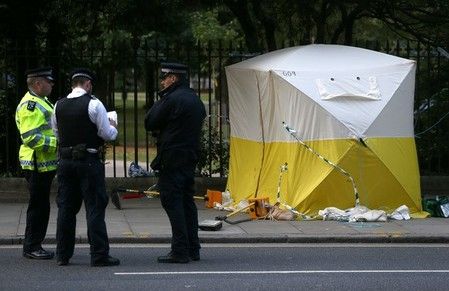Advertisement
Colorado court picks jury for movie massacre lawsuit

By Keith Coffman
CENTENNIAL, Colo. (Reuters) – A six-member jury was chosen on Monday in Colorado to hear the first civil trial of wrongful death and personal injury claims stemming from a 2012 mass shooting in which 12 people were killed and dozens wounded in a suburban Denver movie theater.
Selection of the jurors, plus two alternates, set the stage for both sides on Tuesday to begin delivering opening statements in the lawsuit against the owner of the Century 16 Theater multiplex in Aurora.
More than two dozen plaintiffs, including surviving victims and relatives of the dead, have sued Cinemark USA Inc [CNKMAI.UL] and the cinema’s property owners in state court, accusing them of various security lapses they say contributed to the tragedy.
A separate civil suit against Cinemark in federal court is expected to go to trial in July.
According to the state lawsuit, the companies failed to hire sufficient security personnel in light of a previous shootings and other violence in the shopping mall where the theater is located.
It also cited a lack of surveillance cameras around the property, a faulty emergency exit alarm that failed to go off when the gunman launched his attack through the cinema’s rear door, and the failure of security personnel to intervene once the shooting started.
Plaintiffs’ attorney Marc Bern said Cinemark was especially negligent in failing to notify its general managers about a U.S. Homeland Security Department advisory in May 2012 warning that U.S. movie theaters were potential terrorism targets.
But in court on Monday, Arapahoe County District Judge Phillip Douglass ruled the Homeland Security warning inadmissible, saying it “might mislead and confuse the jury.”
Texas-based Cinemark owns the multiplex where the gunman, James Holmes, opened fire with a semiautomatic rifle, shotgun and pistol during a midnight screening of the Batman film “The Dark Knight Rises” on July 20, 2012.
In its answer to the lawsuit, Cinemark said the movie chain “did not have the legal duty to foresee the injury-causing mass murderous assault committed by James Holmes, nor did it have the legal duty to prevent it.”
Holmes, a former neuroscience graduate student who pleaded innocent by reason of insanity, was found guilty last summer of murdering 12 people and wounding 70 in the rampage, and was sentenced to life in prison.
The plaintiffs are seeking unspecified damages for past and future economic losses, including medical expenses, lost wages, earnings potential and disability, as well as for pain, suffering and emotional stress.
(Editing by Steve Gorman and David Gregorio)











